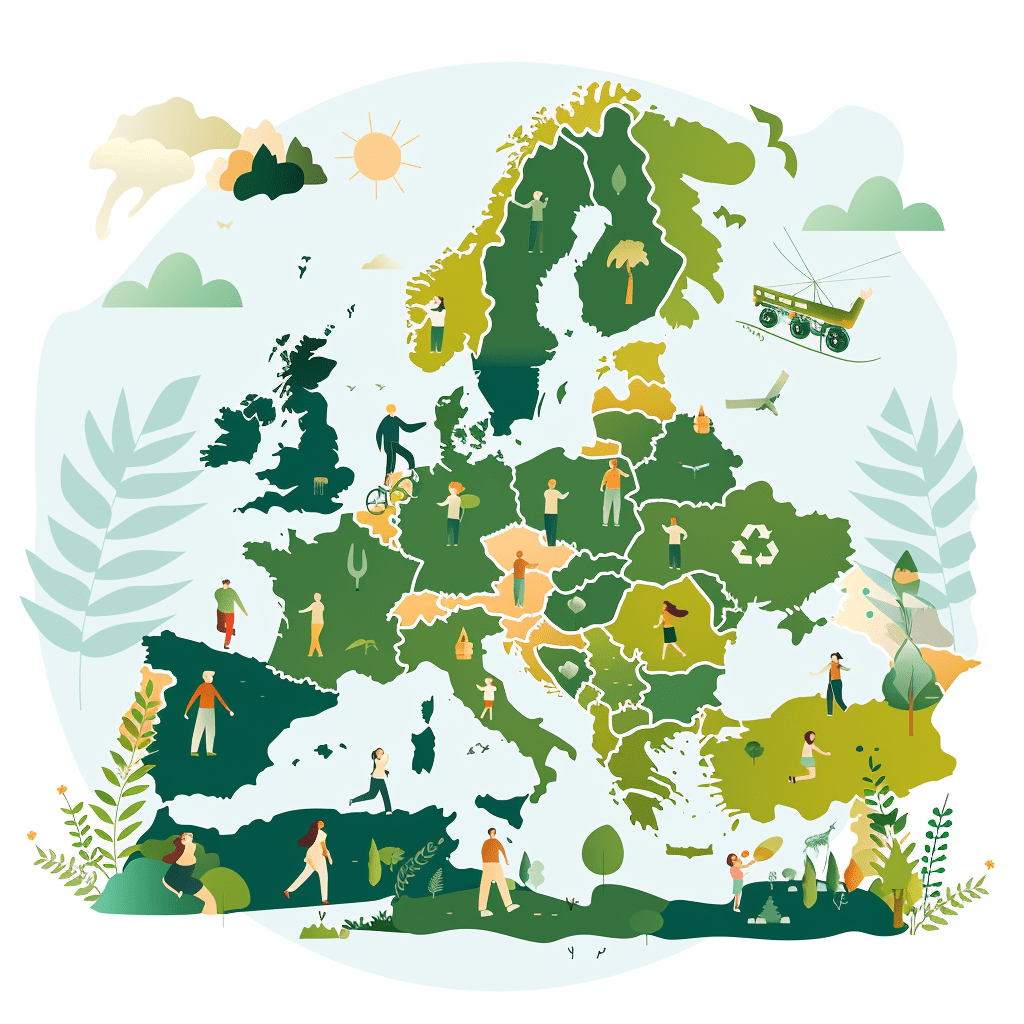The EU’s Green Transition

How the European Union is Addressing the Climate Crisis
The European Union has set ambitious goals for reducing emissions and protecting biodiversity. However, it also faces strong resistance from organized interests opposing the necessary measures
Read all our publications

Our own simulations indicate that global solidarity levies implemented worldwide on maritime shipping and aviation could raise significant revenues. A Policy Brief by Luiz Awazu Pereira da Silva, J. Christopher Proctor, Mathilde Salin, Romain Svartzman, Morgan Després, Pascal Saint-Amans

Developing countries often lack access to the capital needed to fund their low-carbon transition. The ability to find solutions to increase financial flows towards them will be – once again – a decisive element guaranteeing success or failure of COP30. A commentary by Joseph Christopher Proctor, and Romain Svartzman

Scientific evidence shows that climate change is already the third-largest driver of biodiversity loss globally, a threat that will intensify if climate change worsens. Conversely, biodiversity loss worsens climate change. A commentary by J. Christopher Proctor, and Romain Svartzman

Diluting reporting obligations risks creating uncertainty, weakening Europe’s competitive edge in green innovation, and sending conflicting signals to companies and financial institutions that have already invested heavily in compliance. A Policy Brief by Sylvie Goulard, and Keraron Aure

By changing the rules before the actual impact of the 2025 penalties could be assessed, the European Parliament has undermined the very mechanism the EU had in place to foster innovation and competitiveness within the EU auto industry. A commentary by Rachele Cavara, and Francesco Zirpoli

The concept of green backlash has recently become more salient in the news, in part due to the widespread farmers’ protests held in a number of European countries. However, there is so far not much robust empirical evidence of an electoral penalty against governments that implement ambitious climate policies.

This policy brief highlights that while the green subsidies provided by the Inflation Reduction Act of the United States are homogeneous across beneficiaries, the subsidies associated with the Green Deal industrial plan are highly fragmented across European member States. We quantify the extent of resource misallocation due to this subsidy dispersion by using the model of Hsieh and Klenow (2009), calibrated on the EU electricity-producing industry. We compare both the actual allocation of subsidies, and a policy of subsidies coordinated at the EU level, to a hypothetical frictionless benchmark with no subsidies. We find that moving to coordinated subsidies can increase productivity by more than 30% with respect to the uncoordinated scenario, substantially reduce the productivity gap with the United States, and generate gains worth up to 6% of the EU value-added in the industries considered. Policy recommendations include greater EU-level coordination to minimize misallocation and enhance productivity.

The climate diplomacy surrounding the COP28 summit has taken center stage in the inaugural session of the working lunch series organized by the Institute for European Policymaking in collaboration with the European Council on Foreign Relations and the SDA Bocconi School of Management.